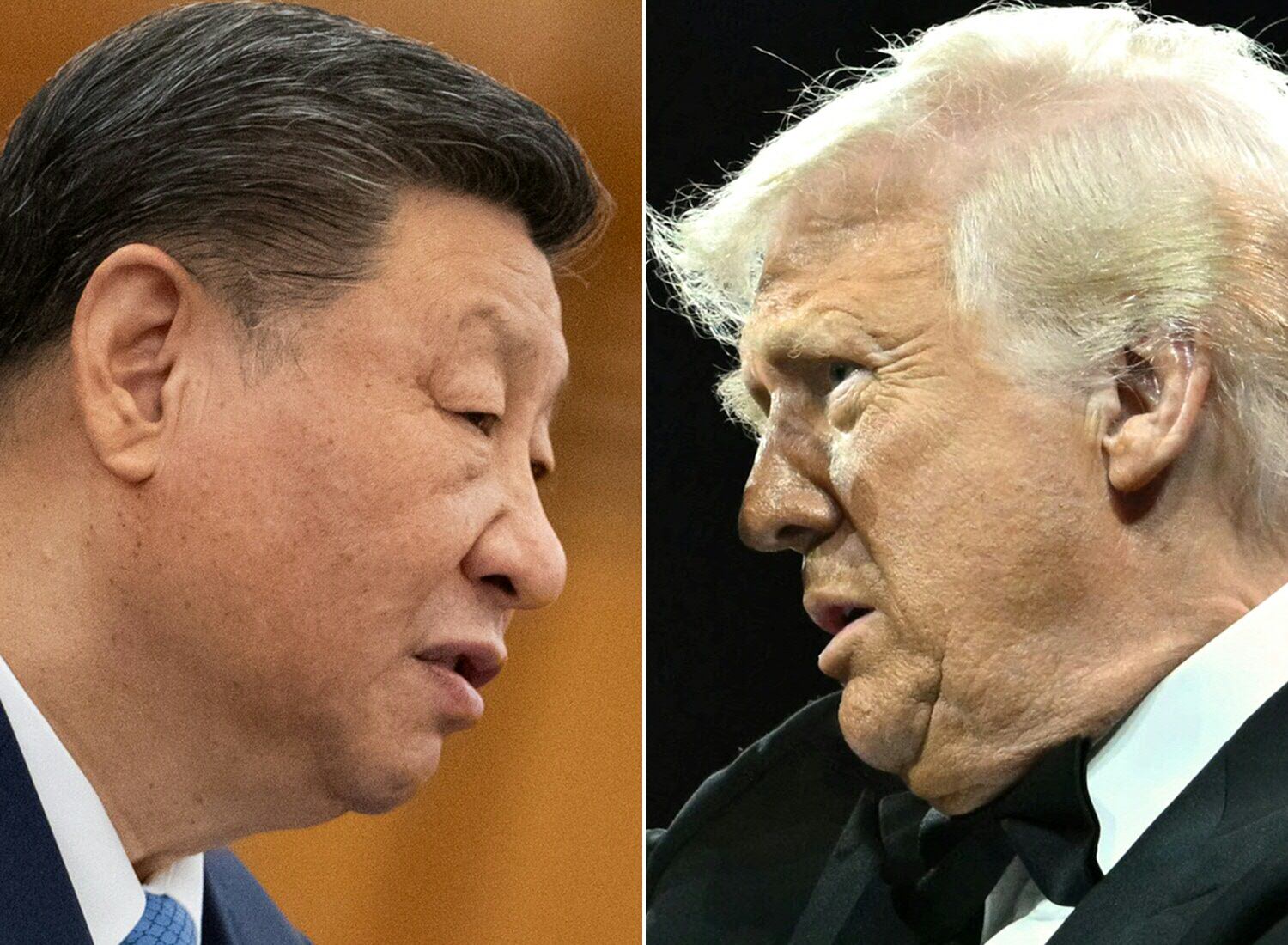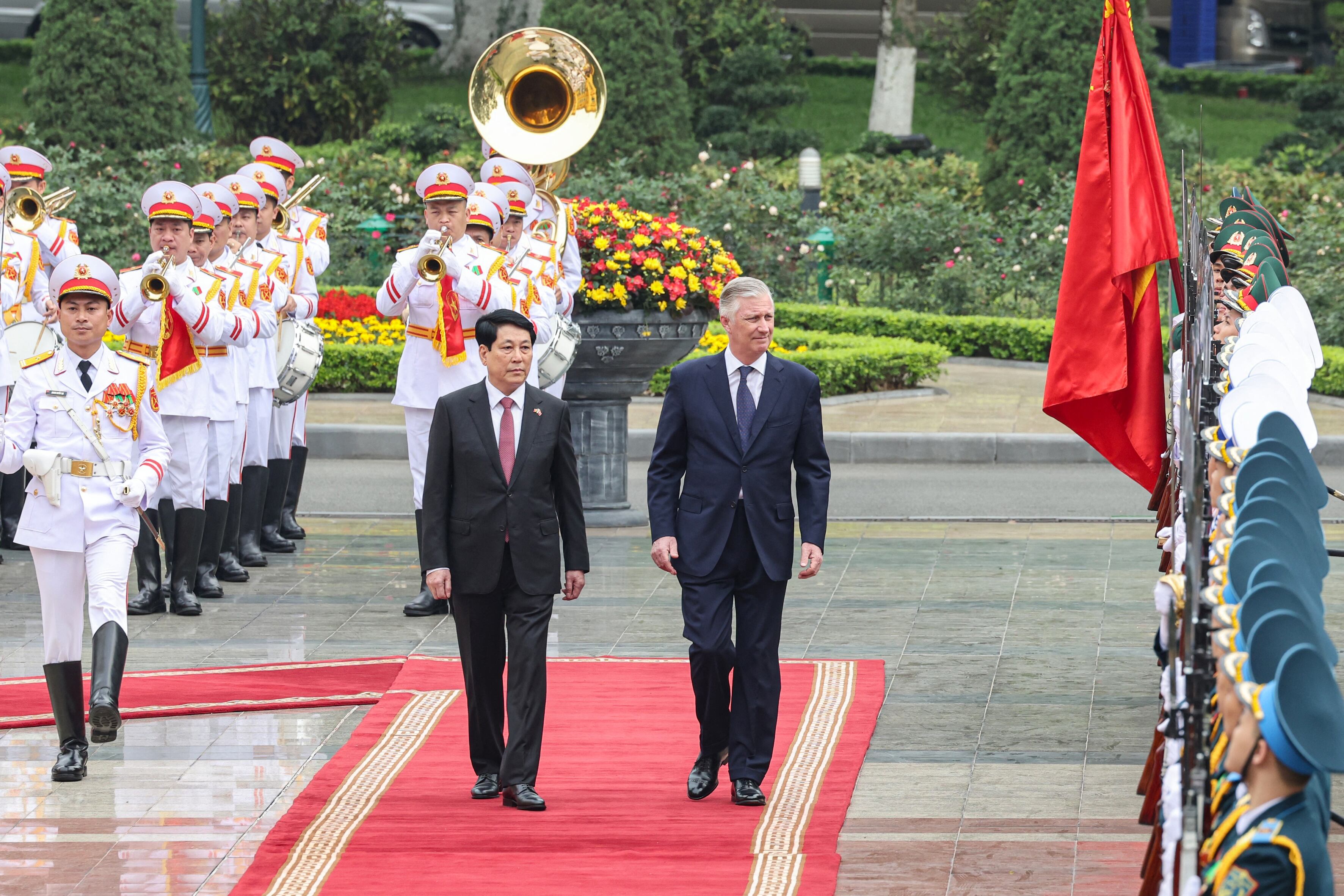Updated April 10, 2025, 04:30 a.m. EDT
BANGKOK – The U.S. and Vietnam have agreed to start talks on a trade deal, the Vietnamese government said Thursday, a possible sign of breathing space for some developing Asian countries as President Donald Trump escalates a trade war with China.
Vietnam’s Deputy Prime Minister Ho Duc Phoc and U.S. Trade Representative Jamieson Greer met in Washington late Wednesday, the day that 46% U.S. tariffs on Vietnamese exports came into force along with higher tariffs on many other countries.
Hours later, President Donald Trump announced he was cutting duties for countries that were willing to negotiate to 10% for three months, but continued measures against China, which now faces a 125% tariff on its exports.
“Though the U.S. has decided to delay the imposition of tariff for 90 days, the two countries should start negotiations on a bilateral trade agreement,” Phoc said, according to the Vietnamese government website.
An agreement would “create a long-term framework to promote stable and mutually beneficial economic and trade relations in line with the comprehensive strategic partnership between the two countries,” Phoc said.
Talks on a technical level would start immediately, the statement said. There was no immediate comment by the U.S.
The two countries elevated their relations to the highest level, a comprehensive strategic partnership, during a 2023 visit to Hanoi by then-President Joe Biden.
On April 4, Communist Party General Secretary To Lam offered to cut tariffs on U.S. goods to zero in a phone conversation with President Trump and urged the U.S. to follow suit.
Trump’s trade adviser Peter Navarro dismissed the proposal as meaningless because it wouldn’t narrow a massive trade surplus. Navarro also accused Vietnam of “non-tariff cheating,” in an interview on CNBC, citing shipments of Chinese goods being routed through Vietnam as one example.
Trump’s announcement that he was cutting tariffs for more than 75 countries to 10% for 90 days helped ease concern that a global trade war would trigger a recession. Asian stocks surged on the back of strong gains on Wall Street. Japan’s Nikkei 225 closed 9.1% higher and South Korea’s KOSPI ended the trading day up 6.6%
The partial reversal on tariffs is a signal that the U.S. will reward countries that don’t retaliate.
Japan and South Korea are among the countries that “want to come to the table rather than escalate,” said Treasury Secretary Scott Bessent, The Associated Press reported.
He said the U.S. is planning “bespoke” negotiations with governments that are prepared to make concessions in return for a tariff reduction.
That’s likely to include members of the Association of Southeast Asian Nations, or ASEAN. Economic ministers from the 10-nation group – America’s fifth-largest trading partner last year – ended a meeting Thursday calling for talks with the Trump administration. They said they wouldn’t fight back in spite of tariffs that were initially among the highest in the world, ranging from 32% to 49%.
“We express our common intention to engage in a frank and constructive dialogue with the U.S. to address trade-related concerns,” ministers said in a statement. “Open communication and collaboration will be crucial to ensuring a balanced and sustainable relationship. In that spirit, ASEAN commits to not impose any retaliatory measures in response to the U.S. tariffs.”
Edited by Stephen Wright.
Updated to add comment from ASEAN economic ministers.


